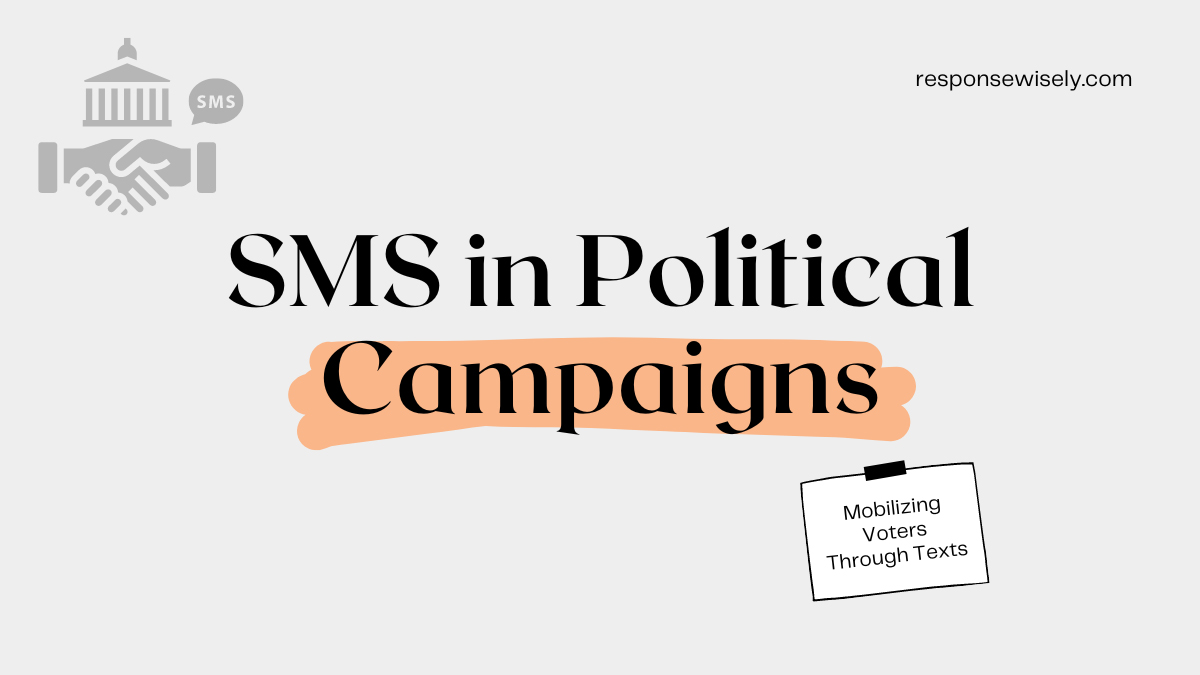In today’s rapid digital world, political campaigns are leveraging the power of SMS to engage and mobilize voters like never before. As a seasoned political campaign strategist, I’ve witnessed firsthand the impact that targeted text messages can have on rallying support and driving voter turnout.
From fundraising appeals to volunteer recruitment efforts, SMS has become a vital tool in any modern political campaign arsenal. In this text, I’ll investigate into the strategies and best practices for effectively utilizing SMS to reach and mobilize voters, eventually shaping the outcome of elections.
Join me as we explore the innovative ways in which political campaigns are harnessing the immediacy and reach of text messages to connect with voters on a personal level, driving engagement and fostering a sense of community.
Importance of SMS in Political Campaigns
Direct Communication with Voters
Utilizing SMS allows direct and instant communication with voters, cutting through the noise of other marketing channels.
High Open Rates
SMS messages have a high open rate compared to emails, ensuring that campaign messages have a greater chance of being read by recipients.
Personalized Messages
Crafting personalized SMS messages helps create a connection with voters, making them feel valued and engaged with the campaign.
Strategies for Effective SMS Campaigns
Segmenting the Audience
When it comes to SMS campaigns, segmenting the audience is key. By dividing voters into specific groups based on demographics or interests, I can tailor messages that resonate with each segment. This personalization boosts engagement and increases the likelihood of voters taking desired actions.
Crafting Compelling Messages
Crafting compelling messages is crucial for the success of SMS campaigns. I ensure that my messages are concise, impactful, and include a clear call-to-action. By grabbing voters’ attention and providing value in each text, I can drive meaningful interactions and build stronger connections with the audience.
Legal Considerations for SMS Campaigns
Compliance with Regulations
When running SMS campaigns, it’s crucial to adhere to TCPA (Telephone Consumer Protection Act) regulations to avoid hefty fines for sending unsolicited messages. Always ensure that recipients have explicitly opted in to receive texts from your campaign.
Permission-based Marketing
Engage in Permission-based Marketing practices by obtaining prior consent from individuals before sending them SMS messages. This not only keeps you compliant with regulations but also fosters trust with recipients, leading to higher engagement rates.
Examples of Successful SMS Campaigns
Barack Obama’s Presidential Campaign
During Barack Obama’s presidential campaign, SMS was a key tool for connecting with voters. The campaign effectively used SMS to send out event reminders, donation requests, and updates, mobilizing supporters and fostering engagement.
Bernie Sanders’ Grassroots Movements
Bernie Sanders leveraged SMS to build powerful grassroots movements during his political campaigns. By sharing real-time updates, fundraising appeals, and volunteer opportunities via text messages, Sanders effectively mobilized his supporters and nurtured a sense of community involvement.
Key Takeaways
- Direct communication with voters through SMS is a key advantage for political campaigns, enabling instant and impactful engagement.
- SMS messages boast high open rates, surpassing emails, ensuring that campaign messages are more likely to be read by recipients.
- Personalized SMS messages play a crucial role in building connections with voters, making them feel valued and engaged with the campaign.
- Segmenting the audience and crafting compelling messages are essential strategies for successful SMS campaigns, boosting engagement and driving desired actions.
- Compliance with legal regulations, such as TCPA guidelines, and engaging in permission-based marketing practices are vital to avoid fines and build trust with recipients.
- Successful examples like Barack Obama’s presidential campaign and Bernie Sanders’ grassroots movements showcase the effectiveness of utilizing SMS to mobilize supporters and foster community involvement.
Conclusion
SMS has proven to be a powerful tool in political campaigns, as seen in the successful strategies of Barack Obama and Bernie Sanders. By leveraging SMS to connect with supporters through event reminders, donation requests, updates, and volunteer opportunities, these campaigns effectively mobilized voters and fostered community engagement. The impact of SMS in political outreach cannot be underestimated, as it allows candidates to directly communicate with their audience in a personalized and timely manner. As technology continues to play a significant role in modern politics, integrating SMS into campaign strategies will remain a valuable asset for reaching and mobilizing voters effectively.
Frequently Asked Questions
Is SMS effective in political campaigns?
Yes, SMS is highly effective in political campaigns. It allows candidates to engage supporters by sending event reminders, donation requests, updates, and volunteer opportunities, fostering community involvement.
Can SMS campaigns mobilize supporters?
Yes, SMS campaigns can effectively mobilize supporters by reaching them directly on their phones and encouraging them to take action in various ways, like donations, volunteering, and event attendance.
How did Barack Obama and Bernie Sanders use SMS in their campaigns?
Barack Obama and Bernie Sanders both used SMS to engage supporters by sending updates, donation requests, event reminders, and volunteer opportunities, showcasing the power of SMS in political campaigns.

